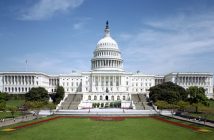Freshman Representative Bob Good (R-Va.) introduced H.R. 398, the “No Asylum for Criminals Act,” his first legislative action in office representing Virginia’s 5th Congressional district. This legislation is more important than ever, as the actions of the new Biden administration threaten to strain our broken asylum processes through the rollback of the Trump administration’s border actions.
H.R. 398 bars convicted criminals from receiving asylum protection. This prevents aliens with prior criminal offenses in the United States from receiving asylum and eventually legal permanent residence. The asylum case backlog exceeded 1.3 million cases when President Trump left office on January 20. This common-sense legislation would reduce the number of cases by making ineligible for asylum those applicants with prior criminal records – including those convicted of illegal re-entry and unlawful presence. If passed, H.R. 398 could significantly reduce this backlog by removing all aliens with these convictions from future case dockets.
Americans saw firsthand the dangerous loopholes associated with our broken asylum process during the spring and summer of 2019. During fiscal year 2019, Customs and Border Protection (CBP) encountered more than 977,000 aliens at the Southwest border. Many of those encountered were seeking asylum, and often went out of their way to locate Border Patrol agents rather than evade them.
Beginning in President Obama’s second term, human traffickers and smugglers discovered that it was significantly easier to enter the U.S. through the asylum process than it was through the traditional way of sneaking across the border and avoiding Border Patrol long enough to make it to the interior of the country. Under catch and release, Border Patrol agents would apprehend aliens, who would then claim that they were seeking asylum protection in the United States. Then comes the release process.
Under a standard known as “credible fear,” any alien found by an asylum officer having a “credible fear” of persecution because of race, religion, sexual orientation, political opposition, or membership in a particular social group could stay in the country until their case concluded. That process – particularly as the case backlog grew – could take well over two years. During this time, they hold work permits and are, for the most part, considered legally present in the United States. Immigration judges usually dismiss the majority of asylum cases, but our “release” process means that by that time, aliens have been in the country for years.
The Trump administration rightly identified asylum abuse as the primary issue affecting southwest border security, even as the president himself focused largely on continued construction of the border wall. The situation was so bad that even the New York Times – hardly a mouthpiece of Trump administration policy – declared that the border was at a “breaking point” in March 2019 following the apprehension of over 76,000 aliens. In hindsight, the crisis continued worsening and in May 2019 CBP apprehended over 144,000 aliens in a single month.
Rep. Good’s bill addresses a small portion of this much larger problem – preventing convicted criminals from receiving asylum. Yet H.R. 398 would actually have an outsized effect on the immigration court backlog by instantly removing tens of thousands of petitioning aliens who have prior convictions – especially those related to immigration offenses. In that way, Rep. Good’s bill would strengthen our asylum process by ensuring that only those aliens with legitimate asylum claims- rather than returning, previously deported individuals – earn asylum protection from an immigration judge able to adjudicate their cases quickly and efficiently.




